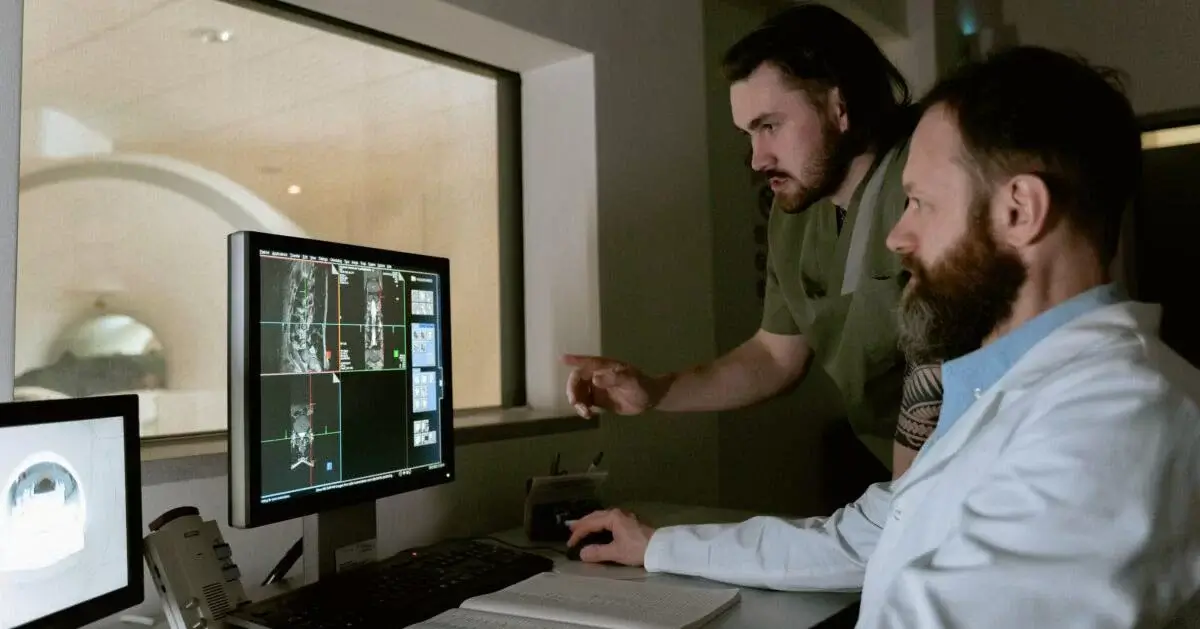As we move close to the second half of 2023, the healthcare industry is continuing to embrace digital transformation, with an increasing focus on data-driven decision-making, patient engagement, and virtual care. As a result, the need for skilled IT professionals who can navigate the complex digital landscape of healthcare has never been greater.
In this blog post, we will discuss the critical IT roles that healthcare facilities cannot go without in the second half of 2023. These roles are essential for ensuring that healthcare organizations have the technical expertise and support they need to thrive in the digital age and to meet the evolving needs of patients and healthcare providers alike.
From clinical systems analysts to health information management (HIM) directors, we will explore the roles that are critical to healthcare organizations’ technology strategy, ensuring that patients receive the best possible care in a secure, efficient, and patient-centric manner. Whether you’re a healthcare leader looking to build a strong IT team or an IT professional seeking to make an impact in healthcare, this blog post will provide valuable insights into the essential IT roles that will shape the future of healthcare.
Health Informatics Analyst
Health informatics analysts play a critical role in healthcare facilities. They are responsible for designing, implementing, and managing healthcare information systems. This includes electronic health records (EHRs), health information exchange (HIE) platforms, and other health information technologies.
Health informatics analysts work with clinical and administrative staff to understand their workflow and identify ways to optimize it using technology. They analyze data and identify trends, helping healthcare facilities to make better decisions and improve patient care. They also ensure that patient data is secure and protected from cyber threats.
This role requires a bachelor’s degree in health informatics, computer science, or a related field. They also need to be certified in health informatics, which can be obtained through organizations such as the American Health Information Management Association (AHIMA) or the Healthcare Information and Management Systems Society (HIMSS).
Clinical Systems Analyst
Clinical systems analysts are responsible for implementing and maintaining clinical information systems, such as electronic health records (EHRs), computerized physician order entry (CPOE) systems, and other clinical decision support tools. They work with healthcare professionals to ensure that clinical systems are configured to meet their needs, and they troubleshoot technical issues as they arise.
Clinical systems analysts also play a role in quality improvement initiatives, helping healthcare facilities to use data to identify areas for improvement and make evidence-based decisions. They have a strong understanding of clinical workflows and communicate effectively with both clinical and technical staff.
Someone with this role typically has a bachelor’s degree in a related field, such as health informatics or computer science. They can also be certified in a clinical systems analyst role, which is obtained through organizations such as AHIMA or HIMSS.
Chief Information Security Officer (CISO)
In healthcare, data security is paramount. Healthcare organizations collect and store vast amounts of sensitive patient data, making them prime targets for cyberattacks. That’s where the chief information security officer (CISO) comes in.
The CISO is responsible for developing and implementing a comprehensive information security program to protect the organization’s data from cyber threats. They work with other IT staff and stakeholders to identify and address security vulnerabilities and ensure that the organization is compliant with relevant regulations and standards.
The CISO also plays a critical role in educating staff on best practices for data security and implementing measures to prevent unauthorized access to sensitive patient information. With the increasing number of cyber threats and data breaches in healthcare, this role has become more important than ever before.
Network Administrator
Network administrators play a critical role in healthcare facilities, where they are responsible for designing, implementing, and maintaining the digital infrastructure that supports patient care. They manage the facility’s network and ensure that it is secure, reliable, and capable of supporting the needs of the healthcare professionals who rely on it.
Network administrators must be able to troubleshoot technical issues as they arise, and they must have a strong understanding of networking concepts and protocols. They may also play a role in disaster recovery planning, ensuring that critical systems remain available in the event of an emergency.
This role typically requires a bachelor’s degree in computer science or a related field. They are also certified in network administration obtained through organizations such as Cisco or Microsoft.
Clinical Informatics Specialist
Clinical informatics is the application of technology to healthcare delivery. Clinical informatics specialists are responsible for developing and implementing technology solutions that improve patient care, increase efficiency, and reduce costs.
The role of the clinical informatics specialist is to bridge the gap between clinical staff and technology. They work closely with healthcare providers to understand their workflows and identify opportunities for technology to improve patient outcomes. They also collaborate with IT staff to develop and implement technology solutions that meet the needs of clinical staff.
Clinical Informatics Specialists are critical to the success of healthcare organizations’ digital transformation initiatives, as they ensure that technology solutions are designed with the needs of clinical staff and patients in mind.
Database Administrator
Database administrators are responsible for designing, implementing, and managing databases that store patient records, clinical data, and other healthcare-related information. They ensure that databases are optimized for performance, security, and availability.
Database administrators must have a strong understanding of database management systems and be able to troubleshoot technical issues as they arise. They also ensure that patient data is secure and protected from cyber threats.
A bachelor’s degree in computer science or a related field is typical for successful database administrators. They are also certified in database administration obtained through organizations such as Oracle or Microsoft.
Health Information Management (HIM) Director
Health information management (HIM) is a crucial function in healthcare, responsible for managing the organization’s health information systems, including EHRs, patient portals, and other electronic health tools. The HIM Director is responsible for overseeing the management of patient records, ensuring that they are accurate, complete, and secure.
The HIM Director is also responsible for ensuring that the organization’s health information systems are compliant with regulatory requirements and standards, such as HIPAA (Health Insurance Portability and Accountability). They work with other IT staff and stakeholders to develop and implement policies and procedures that ensure the integrity and security of patient data.
Cybersecurity Specialist
Cybersecurity specialists play a critical role in healthcare facilities, where they are responsible for ensuring that patient data is secure and protected from cyber threats. They design and implement security measures to protect against unauthorized access, data breaches, and other security risks.
Cybersecurity specialists have a strong understanding of cybersecurity principles and stay up to date with the latest security threats and trends. They also play a role in disaster recovery planning, ensuring that critical systems remain available in the event of an emergency.
A cybersecurity specialist typically has a bachelor’s degree in cybersecurity or a related field with a certification in cybersecurity obtained through organizations such as CompTIA or ISC2.
Conclusion
The healthcare industry is rapidly evolving, and with the advancements in technology, there has been a growing demand for IT professionals who can help healthcare facilities manage their digital infrastructure.
SkillGigs is a fast-growing IT and healthcare talent marketplace that allows you to browse millions of profiles of IT specialists in healthcare based on seniority, experience, salary, and other important parameters. Simply bid for the ones that best fit your requirements, and in return, they provide the best care to the residents of your nursing homes and long-term care facilities.
Contact SkillGigs today for a free demo and consultation that could show you a newer, better way to hire.






